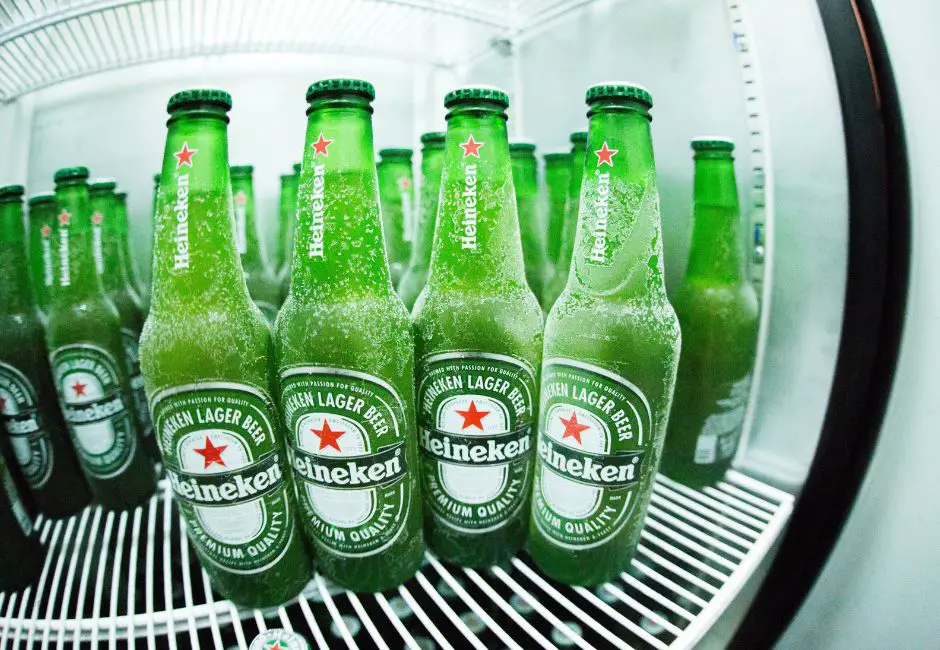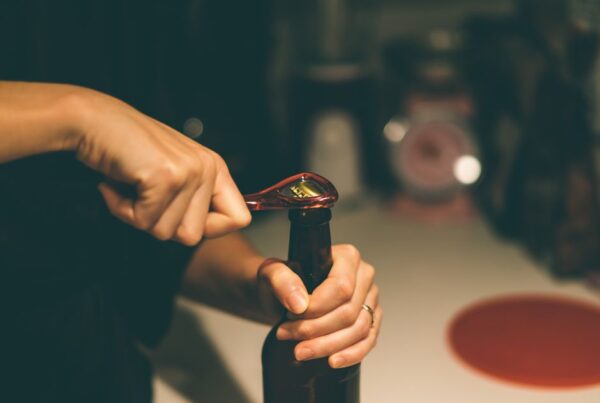Does Beer Expire? (What The Dates Mean)
If you’re like many, you may find yourself staring at the dusty, forgotten corner of your pantry, where you’ve stashed away your bottled beer for a special occasion that never quite seemed to arrive.
Or maybe, while rummaging through the shadows of your fridge, you’ve recently found your fingers brushing against an artifact from seasons past— a remnant of joyous fall celebrations: an Oktoberfest beer, brewed with the warmth of pumpkin spice and the promise of a spooky good time. Only problem is: It’s June.
A lot of us have been there. Stockpiling a collection of seasonal beers with the best intentions—only to realize one day that they’ve been in the fridge longer than the leftover fruitcake.
If you’ve ended up here because you’ve recently found yourself in a scenario like this, the question you’re probably wondering is “Does beer expire?”
Let’s look into the barrel of truth—and tap out the answer:
A Dive into Reddit’s Abyss
The question of beer expiry has been tackled many, many times on Reddit, that bottomless pit of worldly wisdom and speculation. One user, after excavating a beer bottle from the back of his fridge, asked, “When does beer expire?”
Naturally, the ensuing discussion spawned more sub-threads than a college philosophy class dissecting Nietzsche.
What was the consensus? Well, as with most things on Reddit, the answers ranged from “Drink it, it’s fine lol,” to “Don’t do it, you’ll meet your maker lol.”
So Does Beer Have an “Expiration Date?”
The good news is that beer isn’t like milk—it doesn’t curdle and turn into a mess that would make a skunk turn up its nose. But then again, beer doesn’t exactly age like fine wine either (well, unless it’s one of those specific kinds of barley wines, Russian imperial stouts, Trappist quads, Belgian lambics, saisons etc. that do age like wine, but that’s a whole other topic.)
Beer, especially bottled beer, will generally not “‘expire” in the sense that it becomes harmful to consume. However, its flavor, color, and carbonation can change and degrade over time. Basically, it can go stale.
In other words, you won’t die from drinking that properly-stored ale or lager, but your taste buds might not be too thrilled either.
How Long Does it Take?
If you have a bottled beer that’s been chilling in your fridge since the final season of Game of Thrones, what can you expect?
Well, how long it takes for the beer to change depends on several factors: the style of beer, how well it’s been stored, and whether or not it’s been pasteurized.
Most beers only have a shelf life of 3 to 9 months if stored at room temperature, but can often last up to 2 years if refrigerated. Lighter beers tend to go “stale” faster than their darker, more brooding cousins.
Skunked Beer: When Good Beer Goes Bad
If you’ve ever had the experience of downing a beer that tasted like old socks, it probably means you’ve just had a good swig of skunked beer.
Skunky beer, also known as lightstruck beer, has been exposed to light and heat, causing its flavor profile to change significantly. (It actually has much more to do with exposure to sunlight than heat, but in most cases a beer that is exposed to too much sunlight is going to heat up as well.)
This tends to happen more often with bottled beer, but it can happen to canned beer as well, and neither is a very pleasant experience.
Both fortunately and unfortunately, beer expiring by becoming skunky has little to do with its age. A beer well before its “best before date” can become skunky just from sitting out in the sun for too long.
The Date Debate: Expiration? Best Before? Born On?
You’ll often see a “best before” date on beer labels rather than an “expiration date.” This isn’t a sneaky move by beer brewers to evade responsibility, it just indicates the period within which the brewer believes their beer will taste its best.
Drinking beer past this date won’t land you in the ER. It may, however, lead to an underwhelming beer drinking experience. Sort of like expecting a ride on a rollercoaster but ending up on the teacups instead.
You’ve probably also noticed that some beers have a “born on” date. There’s no real trick to these either, it’s just an alternate way that breweries can let you know that you’re getting a fresh product.
And, since typical beers don’t “expire” in the traditional sense, it’s logical to include a born on date rather than a “best before” date. Knowing this date can help you calculate just how fresh (or not) your beer is.
Takeaways
Let’s summarize this booze cruise:
- Does beer expire? Not in the sense of becoming harmful, but it can degrade and lose its original charm.
- How long does beer take to expire? Most beer will last 3 to 9 months at room temperature, or up to two years if refrigerated. But don’t treat this as a hard and fast rule—your mileage may vary.
- Can you drink beer past its best before date? Absolutely, if you’re prepared for the potential disappointment. (Just don’t expect the flavor or texture that the brewer initially intended.)
- Beer is best enjoyed fresh. So, if you’ve been hoarding beer like it’s the end of days, you now have a perfectly good excuse to invite some friends over, pop open those bottles, and sip away.
So the next time you find a bottle or a can that’s been hiding in your fridge since the last solar eclipse, don’t panic. You’re not holding a ticking time bomb—just a brew that might not be in its flavor “prime.”
Think of beer that’s a little past its date like stale bread. It won’t be the greatest sandwich you’ve ever had, but it’s still better than going hungry.






